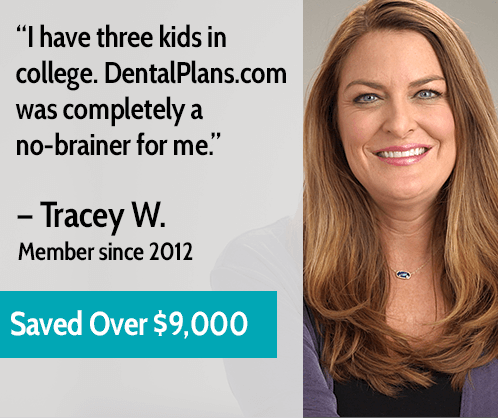“Healthcare is a human right, and protecting your health with the right insurance brings peace of mind and financial stability.”
In today’s world, the topic of health insurance is paramount, especially for residents of Orange Park, Florida. Access to the right healthcare plans significantly influences the quality of care individuals and families receive. Proper health insurance not only provides vital coverage in times of need but also fosters better health outcomes, protecting against unexpected medical expenses that can devastate finances. For those under 65 years old, finding the right health insurance options is an essential step towards a secure future. Families, small business owners, self-employed professionals, skilled workers, and independent contractors all stand to benefit from understanding their coverage options, ensuring they can access the medical services they require without crippling financial stress.
If you’re looking to secure the best health insurance plan tailored to your needs, consider consulting a licensed health insurance expert. An expert market research consultation can save you time and money, helping you avoid common pitfalls when selecting the right health coverage for you and your loved ones. Fill out the form below to get started!

Understanding Health Insurance Marketplace vs. Private Options
Marketplace Advantages
The Health Insurance Marketplace, established by the Affordable Care Act (ACA), offers several benefits for individuals and families seeking insurance coverage. One of the most notable advantages is the possibility of subsidies based on income levels, which can dramatically reduce monthly premiums and out-of-pocket expenses. Additionally, Marketplace plans provide a minimum set of essential health benefits that ensure comprehensive coverage, promoting preventive care and overall wellness. This public option also allows for transparent plan comparison, making it easier for consumers to select the coverage that best meets their needs. However, the open enrollment period can be restrictive, leaving consumers with limited options outside this window.
Private Insurance Benefits
Private health insurance options provide flexibility that many people find appealing. Unlike Marketplace plans, private insurance can often be obtained year-round, allowing individuals, families, and small business owners to secure coverage that suits their specific situations. Private plans might also feature a more extensive range of providers, offering greater access to specialists. However, private insurance typically comes without any subsidies, possibly resulting in higher premiums. Additionally, these plans may have different levels of coverage depending on the insurer, which can lead to confusion about benefits and costs. It’s crucial to weigh personal health needs against costs when considering private insurance over Marketplace options.

Key Cost Factors to Consider
Understanding Premiums and Deductibles
The cost of health insurance is a critical element that affects every plan. Premiums, the monthly costs to maintain your insurance coverage, can vary greatly based on factors like age, location, and the type of plan selected. Those under 65 often face unique challenges; for example, families may need more comprehensive coverage due to increased healthcare needs. Moreover, understanding deductibles—how much you pay out-of-pocket before insurance kicks in—is essential. Higher deductibles generally lower your premium, making it vital to assess your health conditions and anticipated healthcare needs to find a balancing strategy that works.
Out-of-Pocket Expenses and Maximums
Beyond premiums and deductibles, out-of-pocket expenses can be a significant source of financial stress. These costs include copayments, coinsurance, and other expenses for which you’re responsible until you reach your out-of-pocket maximum. Under ACA plans, this maximum is a safety net that counters excessive spending on healthcare in a single year. Selecting a plan with a suitable out-of-pocket maximum is crucial, especially for those with ongoing healthcare needs or chronic conditions. Comparing out-of-pocket maximums between Marketplace and private plans can illuminate options that best suit your family budget and healthcare requirements.
Get a hussle-free consultation
Pre-Existing Conditions and Coverage
The Impact of Pre-Existing Conditions
Pre-existing health conditions often pose concerns when selecting insurance plans. The ACA made significant strides by prohibiting insurers from denying coverage based on these conditions—a vital change that improves healthcare access for millions. However, understanding how these conditions affect your premiums, network options, and overall costs is critical. Marketplace plans guarantee coverage regardless of pre-existing conditions, but insurance options can differ significantly in terms of how services related to these conditions are handled when comparing private plans.
Evaluating Coverage Options
When evaluating health insurance options, it is essential to thoroughly assess your specific healthcare needs, especially with pre-existing conditions in mind. Some plans may offer better coverage for related treatments, medications, and specialist visits. It’s also important to decipher the nuances in provider networks between Marketplace and private options. Larger networks can provide more choices but may come with different premiums and deductibles. Understanding these variables can empower you to choose a plan that will not only be affordable but also provide necessary care when it counts.

Understanding Provider Networks
In-Network vs. Out-of-Network Benefits
Choosing a plan with the right provider network is a vital aspect of health insurance. Most insurance plans include in-network and out-of-network providers, with in-network typically offering lower cost-sharing. Understanding the difference is key—out-of-network providers may result in significantly higher out-of-pocket expenses. For residents in Orange Park, Florida, it’s crucial to compare which local providers are available on your preferred plans, ensuring those you trust are accessible and affordable.
Narrow Network Plans
Narrow-network plans are becoming increasingly common, particularly in the Marketplace, and they may represent both advantages and disadvantages. These plans often provide lower premiums in exchange for restricted access to a select group of healthcare providers. While this can serve as a cost-effective solution, it might limit choices for specialized care. It’s important to carefully review narrow network options to ensure that your primary care and any specialists you may need are included, allowing you to prioritize both cost savings and ongoing health needs.

Final Thoughts on Securing Health Insurance
The Importance of Informed Decision-Making
Choosing the right health insurance is a task that requires due diligence. With various options available, individuals and families must assess their unique healthcare needs, financial situations, and preferences. Understanding the intricacies of health insurance, from premiums and deductibles to coverage for pre-existing conditions, is essential for making informed decisions that can lead to better health outcomes. The implications of health insurance stretch far beyond medical services; they significantly influence your peace of mind and financial stability.
Getting Help When You Need It
If you’re feeling overwhelmed by the array of plans and options available, remember that help is at hand. Licensed health insurance professionals can offer valuable insights and personalized advice to ensure you make the most informed decision possible. Don’t hesitate to reach out for assistance in navigating the complexities of health coverage; it could save you time, money, and stress in the long run.
Common Questions About Health Insurance in Orange Park, Florida
1. What are the best health insurance options for under 65 in Orange Park?
The best health insurance options will depend on individual needs, including healthcare usage, budget, and any pre-existing conditions. Marketplace plans can offer affordable coverage with subsidies for those who qualify, while private plans provide the flexibility of year-round enrollment and potential wider network access.
2. How can I lower my health insurance premiums?
To lower premiums, consider increasing your deductible, participating in wellness programs offered by some insurers, or shopping around for various plans to find the best rates. Qualifying for subsidies through the Marketplace can also substantially reduce costs based on income levels.
3. Is it better to choose a Marketplace plan or a private insurance plan?
This choice hinges on personal circumstances. Marketplace plans tend to offer subsidized options and comprehensive coverage, while private plans might provide more flexibility and broader provider choices but usually at higher costs without subsidies.
4. What should I know about out-of-pocket maximums?
Out-of-pocket maximums are the most you will have to pay for covered services in a plan year. After reaching this limit, your plan covers 100% of covered healthcare expenses. It’s crucial to understand how these work to protect against high medical bills.
5. Can pre-existing conditions affect my coverage?
Under the ACA, insurers cannot deny coverage based on pre-existing conditions. However, this may differ with private insurance options. It is essential to compare the details of coverage regarding pre-existing conditions to ensure appropriate care is provided if needed.
For immediate assistance in finding the best health insurance options tailored to your needs, please call or text (407) 588-0505.







0 Comments